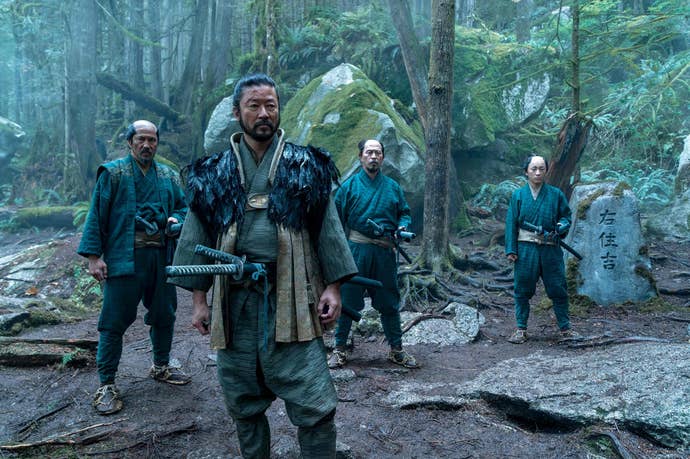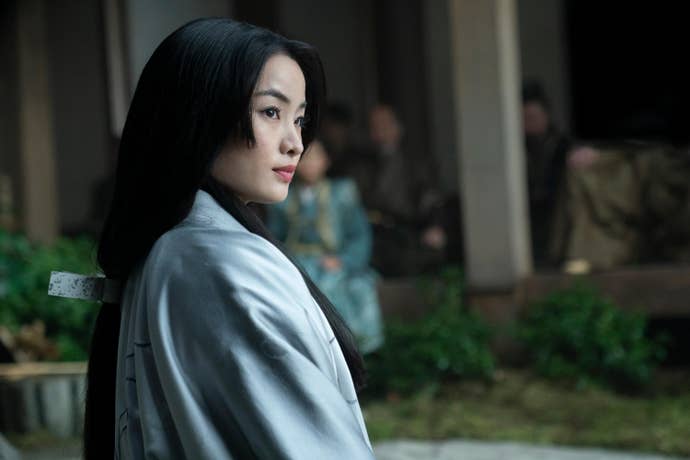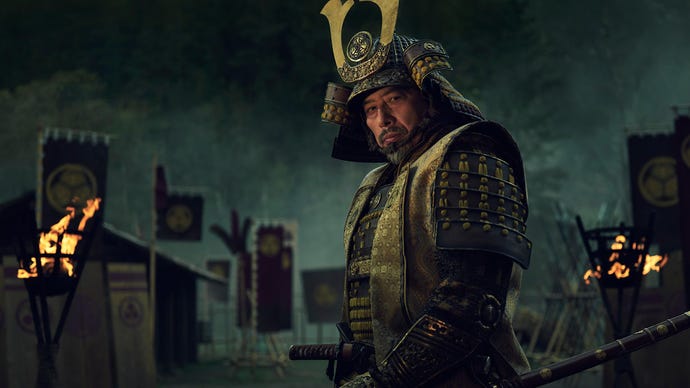Shogun is brave, bold, and a must-watch TV epic for the ages
If you’re yet to watch FX’s hit new Japanese historical drama, there’s no more excuses: with the full season out, it’s a bingable must-watch.
As someone who has always taken an interest in Japanese history, James Clavell’s 1975 novel Shōgun is one of my all-time favorite books. It’s an enticing premise: the story of the first Englishman to reach Japan and his experiences within the country. A fight for survival leads to an actual important role, our adventuring lead ultimately rubbing shoulders with some of Japan’s most important and elite historical figures.
It’s an intriguing adventure that masquerades as a history book - or perhaps it’s the other way around?
The truth is, Clavell played fairly fast and lost with the actual history. Shogun’s protagonist John Blackthorne is directly based on William Adams, who was the first Englishman to reach Japan. Adams was an important figure - but Clavell takes it quite a bit further.
Adams did indeed become one of the first Westerners to be granted the title of Samurai, and became an indispensable ally and advisor to Tokugawa Ieyasu, the leader who would bring wide-scale peace to Japan. Many interactions in Clavell’s novel and the show are directly based on Adams’ own diaries. But Adams wasn’t really involved in the greater goings on, and certainly wasn’t a key player in the events that turned 17th-century Japan on its head.
Clavell wisely didn’t care. He plays with history in the best way an entertaining novel can. It’s true ‘historical fiction’ - emphasis on both words, not just one. Clavell keeps the broad strokes correct, but invents and tweaks in the margins.

As the westerner’s window into this vastly different world, Blackthrone becomes directly embroiled in history’s major events more than his inspiration ever did while remaining fascinatingly without power or agency, swept along into events much greater than him. Even with the changes, the vibe, so to speak, is historically sound.
One has to imagine that were he still alive, Clavell would approve of this adaptation’s approach. It treats his novel in a similar way to how his novel treated history - as a broad sketch, important to respect but not exactly 100% sacred. The result is a different show to the TV version of Shogun that Clavell was directly involved in back in the 1980s - but it’s better for it.
The 80s TV miniseries sits in a peculiar place. It was well-reviewed and remains well-liked in the West - but in Japan it garnered much criticism for being a shallow representation of a vital period of that country’s history. Four decades later we live in a far more international world - and so it’s only right that a modern representation would truly imbue the Japanese perspective more properly. A raft of Japanese creatives were recruited, including Hiroyuki Sanada as both a key leading actor and a producer. The result is tangible on-screen.
Clavell described his original book as “passionately pro-Japanese”, but this arguably wasn’t something matched in its eighties adaptation. Here, it feels so: authentic, grounded, and respectful - but also unflinching in its depiction of some of the nastier elements of Japanese society in that period of time. The majority of the show’s dialogue is merely subtitled Japanese, and its cast is studded with actors that won’t be so well known to us Westerners, but are regulars in Japanese productions. Clavell’s passion is carried over more clearly in this adaptation and should be clear to all, even those who haven’t read the original book or watched the eighties TV retelling.
But perhaps what most impresses me about Shogun 2024 is its sense of restraint. Having set out that it’s willing to make some fairly significant changes from the book, it could go nuts - but it does not. In fact, often things are changed from the book to bring them back to be more closely aligned with the real history - the opposite of bombast.
Let me give a clear and obvious example: this is not a show about battles and fighting. There are explosions of violence as lives are taken with brutal efficiency - but it’s not an action show, despite the posters depicting Sanada’s powerful Lord Yoshii Toranaga (Shogun’s version of history’s Tokugawa) atop a horse, samurai sword drawn. The posters are, to be honest, a bit of a lie.
The real life version of these events culminate in the Battle of Sekigahara, an epic showdown for the fate of Japan. In our bombast-obsessed present day, it’d be easy to take that and run with it, topping the series off with some huge, unending battle where wave after wave of CG-duplicated stuntmen smash into each other. But, no: this is a show about the characters.

The battle is glossed over, in fact - that is the destination. The show surmises - correctly - that the domino-like series of events leading up to the battle are more interesting than the fight itself. In fact, the whole point is that by the time these fights roll around, they are fait accompli; their results are already determined. It’s no real spoiler to say the results of that fateful battle are disclosed in a blink-and-you’ll-miss-it flash forward. This is retained from the book.
This isn’t just a show about characters, though. To be specific, this is a show about words. About their power, their importance. Toranaga’s natural state is to observe and think - before acting, before fighting, even before speaking. Cosmo Jarvis spends much of his performance depicting a glorious undercurrent of frustration and bewilderment - everyone around him talking in Japanese, his understanding limited. As the series progresses and his understanding grows, the mood begins to shift. His performance subtly turns. He understands more; so do we.
With this in mind, it’s appropriate that the show’s break-out star is Anna Sawai and her depiction of Toda Mariko - defacto translator to Blackthorne, but so much more besides. Her performance is a tour-de-force that should lead to plenty of awards - and it’s appropriate, in a sense, that this show’s beating heart is a character who most pointedly straddles true history and the fictions the show weaves in a particularly fascinating way.
A slow burn that builds and builds, getting better with each episode, Shogun is a triumph. While the names have changed, it’s also a relatively decent history primer about the broad strokes of how one of Japan’s greatest leaders came to power.
Ultimately, it’s one of the best TV shows in years. It leaves me a little sad that there is no more to adapt - Clavell’s novel ends where the show does, and as Steph argued elsewhere on the site, it wouldn’t feel right to continue to adapt the real history from this point without his touch. But at the same time, sometimes less is more - and in its all-too-brief ten episodes, Shogun proves that rule. Watch it.
Shogun is available to watch in full now on Hulu in the US, and on Disney+ in many other territories worldwide.


